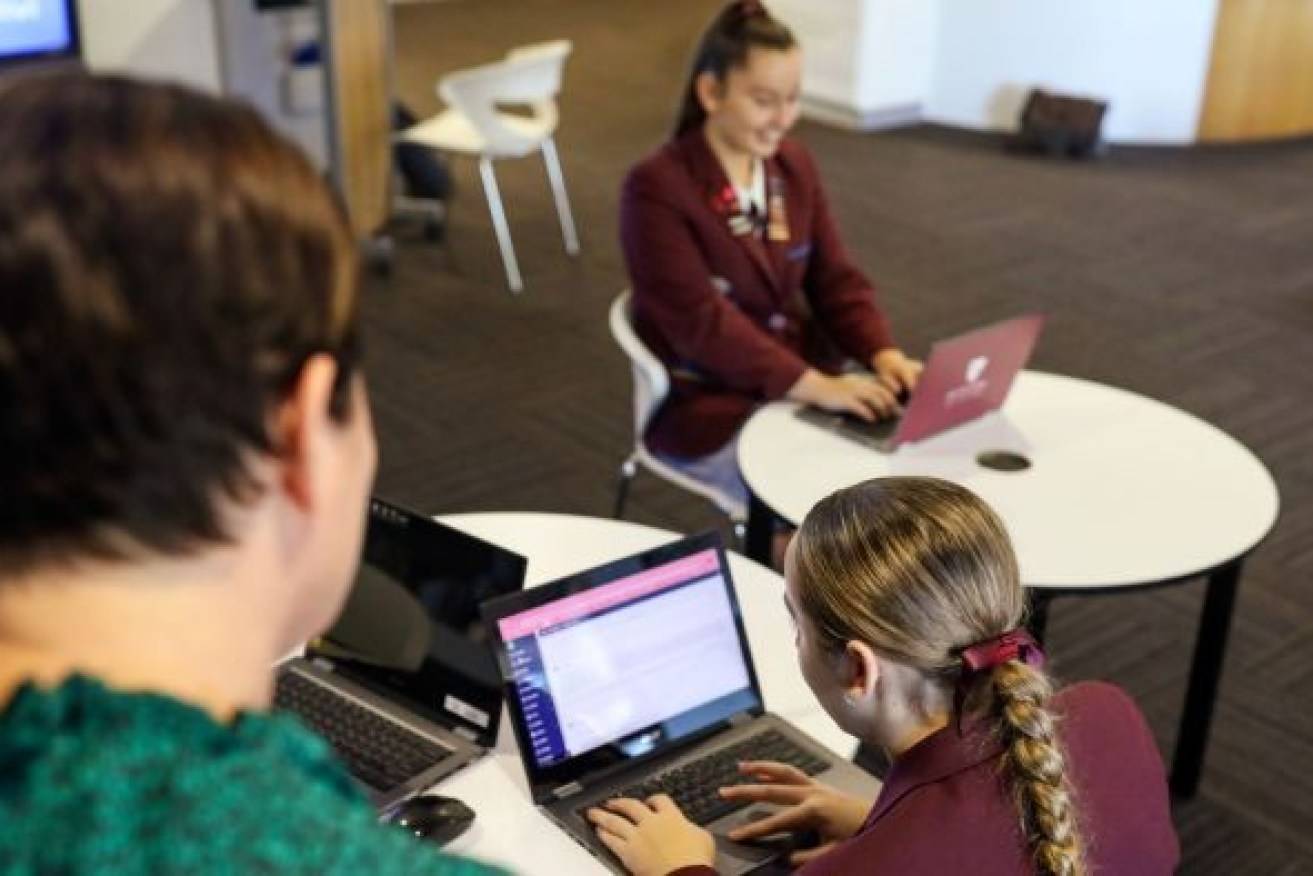Our high-school principals lead nation in feeling stressed, depressed
A new study shows Queensland’s principals are the most stressed, depressed and burnt-out in the nation, with many reporting workloads have grown drastically in recent years.

Workloads for Queensland secondary principals have increased "enormously", the Principals' Association says. (Photo: ABC)
The results came from responses to the Australian Catholic University’s (ACU) 2019 Australian Principal Occupational Health, Safety and Wellbeing survey.
Queensland principals had the highest scores for burnout, sleeping trouble, stress and depressive symptoms.
The study also showed the quantity of work was at its highest in nine years, with the main causes of stress attributed to teacher shortages and issues surrounding the mental health of students and staff.
Parent-related issues were also high on the list of causes for stress.
More administrative support for principals
Brisbane’s Mansfield State High School executive principal, Karen Tanks, has called for more administrative support for school leaders.
“Just the extra [human resources] in the school structure, that is the biggest thing that we are fighting for,” Tanks said.
Her school has 3157 students and she said she had to use money out of her school budget to appoint two associate principals to share the workload.
“If I didn’t have them, I don’t know what I would do.”
One associate principal looks after the learning and teaching needs of the school, while the other oversees students and performance — both roles Tanks felt she was too busy to conduct comprehensively at a high standard.
“I make sure I make time to visit classrooms, but to actually concentrate on that real quality learning and teaching — I don’t get time to do that,” she said.
“By having these two extra people, that helps me do my job more effectively, but I have to allocate money out of my own school budget to have them.”
Tanks said bigger schools needed more staff to ensure every child was given the quality of education they deserved.
She said she had also appointed extra department heads from her school budget, using money not usually reserved for employment.
“In the end, we just need extra people on the ground to help these students out,” Tanks said.
Workloads ‘increased enormously’
Queensland Secondary Principals’ Association president Mark Breckenridge said immense workloads were a definite cause of stress across the state.
“The workload has increased enormously, as well as the sheer complexity of the work,” he said.
“Principals are managing large, complex organisations and with that comes an enormous array of issues to deal with.”
He said Queensland principals in particular could be reporting higher levels of stress due to the diverse range of school sizes.
“We have the smallest and most remote schools in the country, right up to the largest school in the nation,” he said.
Breckenridge said managing schools at both ends of the scale involved great responsibility that could put extra pressure on principals.
“The expectations that are on schools from communities and governments are significantly higher than what they were some time ago, so all of that has had an obvious impact on principal health and wellbeing,” he said.
The changing environment had seen pressures grow to higher levels than some principals were used to managing, which Breckenridge said could affect their ability to effectively perform their roles.
“Principals bounce out of bed every morning, they absolutely love the job that they do, they know it is incredibly important work and not for a minute does anyone deny that,” he said.
“Just on some days, we would like that work to be a little bit easier.”
Fewer teachers want to step up
In Mount Isa, Spinifex State College principal Phil Sweeney said isolation had been a cause for stress well before COVID-19.
“Isolation is a fairly major component of the difference that we see [between metro and remote schools],” Sweeney said.
He said attracting quality teachers was another pressure that came with working in remote locations.
A fifth of teachers at Spinifex are in their first year of teaching and more than half are in their first or second years in the workforce.
Sweeney said this meant the development and wellbeing of his teachers became an added responsibility.
“Most of our young teachers are away from their family base, so our job is to make sure they feel supported and we do all of that development, so they become really quality teachers,” he said.
‘Low replacement rate’
ACU and Deakin University researchers, who carried out the survey, hoped mass disruptions to school life from COVID-19 would bring awareness to the key roles principals played.
Deakin University researcher Phil Riley said the survey also found the principal workforce was ageing, with 70 per cent aged over 50 and one in four nearing retirement.
“It should be no surprise that fewer educators are willing to step up and take on the increasingly complex role of school principal,” Riley said.
“The low replacement rate for retiring school principals tells a truly dire story about our education system which should concern us all and needs further investigation.
“If we, as a nation, are serious about the key role of education in the growth and development of Australia, we simply cannot ignore school leaders’ cries for help.”
– ABC / Jessica Rendall












